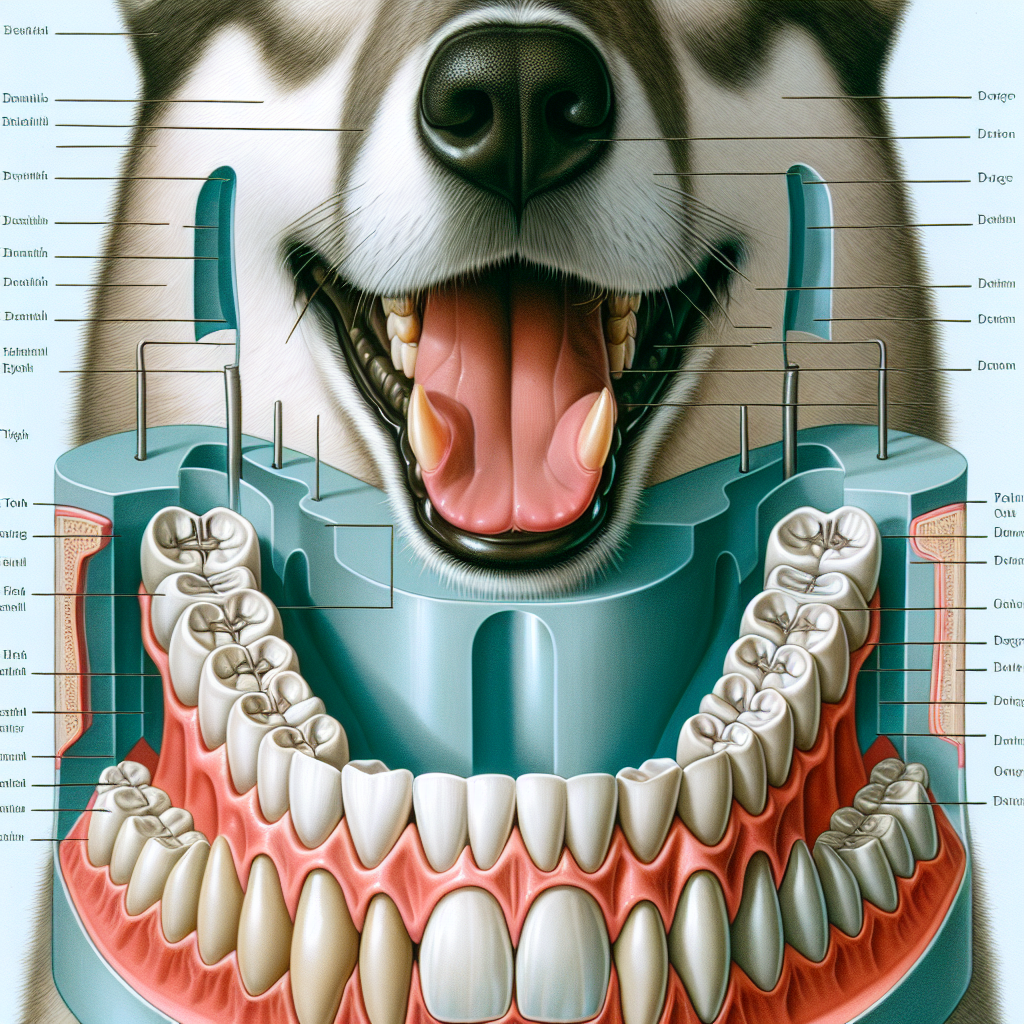As a devoted pet owner, the well-being of your dog is undoubtedly a top priority. However, many enthusiasts overlook a critical aspect of canine care: dental health. Understanding canine dental health is crucial, especially when it comes to the question, "How many teeth do dogs have?" Neglecting this important area can lead to serious health issues, impacting not only your dog’s mouth but their overall well-being. This article will delve into the significance of canine dental health and provide you with essential insights into the oral structure of your furry friend.
The Importance of Canine Dental Health for Your Dog
Maintaining your dog’s dental health is not merely an aesthetic concern; it is vital for their overall health and longevity. Just like humans, dogs can suffer from various dental issues, including plaque buildup, gum disease, and tooth decay. These conditions can lead to significant pain and discomfort, affecting your dog’s ability to eat and enjoy life. Furthermore, untreated dental problems can result in systemic health issues, as bacteria from infected gums can enter the bloodstream and affect vital organs such as the heart and kidneys.
Regular dental care is essential in preventing these complications. Many veterinarians recommend routine dental check-ups, which can help in early detection of oral diseases. In addition, brushing your dog’s teeth regularly and providing dental treats designed to promote oral health can make a substantial difference. By prioritizing your dog’s dental health, you’re ensuring a happier, healthier life for them, which can ultimately lead to reduced veterinary costs in the long run.
Moreover, the emotional bond between you and your pet can be strengthened through proactive dental care. A dog that is pain-free can be more playful, energetic, and social. By investing time in their dental hygiene, you are not only preventing health issues but also enriching your relationship with your canine companion. This holistic approach to pet care emphasizes that dental health is an integral part of your dog’s overall well-being.
How Many Teeth Do Dogs Have? A Comprehensive Guide
When it comes to understanding canine dental health, one of the most fundamental aspects is knowing how many teeth your dog possesses. Adult dogs typically have 42 teeth, comprising incisors, canines, premolars, and molars. The 12 incisors at the front are used for nibbling and grooming, while the 4 prominent canine teeth serve as tools for gripping and tearing food. The 16 premolars and 10 molars at the back of the mouth perform the crucial task of grinding down food, assisting in the digestive process.
Puppies, on the other hand, are born with 28 baby teeth. These teeth, often referred to as deciduous teeth, begin to erupt around three weeks of age and are typically all in place by six weeks. Between 4 to 6 months, these baby teeth start to fall out, making way for their permanent adult teeth. Understanding this timeline is vital for dog owners, as it helps in recognizing normal teething behavior versus potential dental issues that might require veterinary attention.
It’s also worth noting that while some breeds may have slight variations in tooth count due to genetic factors or evolutionary adaptations, the general structure remains consistent across most dog breeds. This knowledge not only helps pet owners in maintaining their dog’s dental health but also aids veterinarians in diagnosing any potential abnormalities. Recognizing the typical number of teeth can assist in identifying dental problems early on, ensuring timely intervention.
In conclusion, understanding canine dental health is essential for every dog owner. Knowing how many teeth dogs have is more than just trivia; it is a key component in ensuring your pet’s health and happiness. Regular dental care and awareness of your dog’s oral hygiene can prevent serious health complications and foster a stronger bond between you and your furry friend. Make it a priority to incorporate dental care into your dog’s routine, and don’t hesitate to seek professional advice if you notice any signs of dental distress. Your dog’s health is in your hands, and with the right knowledge, you can help them live a long, fulfilling life. Don’t wait — start prioritizing your dog’s dental health today!
Measuring Your Dog’s Height: A Comprehensive GuideUnderstanding How Dogs Become Infested with FleasUnderstanding the Lifespan of Pug Dogs: What to ExpectRelevant LinkRelevant LinkRelevant Link
